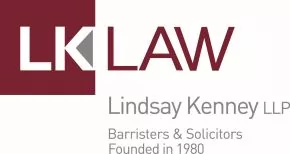- within Finance and Banking topic(s)
- with Senior Company Executives, HR and Finance and Tax Executives
- with readers working within the Accounting & Consultancy, Banking & Credit and Healthcare industries
The reality is a lot of us spend a significant amount of time at work; sometimes more than at our own homes. You see your boss and coworkers more than your own family and friends. Every day, most of us work at least 9:00 am to 5:00 pm. Not to mention the various social work events we attend after hours and on the weekends. Our offices are our second homes, and it should provide us with a certain level of comfort and security. It should.
The unfortunate reality is sexual assault and harassment at the workplace is a real and ongoing issue. Victims, unsure of their rights, and more importantly unsure of their chances of success in advancing their rights, often sweep things under the rug.
Gone are the days, however, of victims silencing their abuse. The #MeToo Movement, social media campaign protesting sexual violence in the workplace against women, which began in the United States in October 2017 in the wake of accusations against Hollywood film producer Harvey Weinstein, has shined a light on this issue. The power of the #MeToo Movement appears to have given women the courage and strength to report sexual assault and harassment– the impact is certainly being felt in Canada.
What Constitutes as Sexual Harassment?
In Janzen v. Platy Enterprises Ltd., the Supreme Court of Canada defined sexual harassment as "unwelcome conduct of a sexual nature that detrimentally affects the work environment or leads to adverse job‐related consequences for the victims of the harassment".
Examples of conduct that may constitute as sexual harassment:
- questions and discussions about a person's sexual life;
- touching a person in a sexual way;
- commenting on someone's attractiveness;
- persisting in asking for a date after having been refused;
- telling a woman she belongs at home or is not suited for a particular job;
- sexually suggestive comments;
- eyeing someone in a suggestive way; and
- displaying cartoons or posters of a sexual nature.
What Constitutes as Sexual Assault and/or Battery?
In Norberg v. Wynrib, the Supreme Court of Canada described battery as the intentional infliction of unlawful force on another person.
Examples of conduct that may constitute as sexual assault:
- touching a person sexually;
- forcing a person to perform fellatio; and
- vaginal or anal penetration.
How is Civil Law Different from Criminal Law?
Sexual assault and harassment are both a crime and a tort. These are two different legal actions that can be ongoing concurrently.
In sexual assault and harassment criminal law, sexual assault and harassment is a crime. It is a criminal wrong that is punishable by the State i.e. your government. The Crown is responsible for bringing forward Criminal Code charges and securing convictions. The Crown must prove that the accused is guilty of the charges "beyond a reasonable doubt". This is a very high standard of proof. This is an evidentiary standard.
In civil law, sexual assault and harassment is a tort. This a civil wrong that arises from the violation of your private rights. There are a few key differences in sexual assault and harassment civil law. First, your private practice civil lawyer is responsible for progressing your legal claim in civil court, not the Crown and not in criminal court. This means you have a greater say. You instruct your lawyer on how and when you want to proceed with the stages of litigation and negotiation. Secondly, civil law has a significantly lower threshold for the standard of proof. The standard of proof is a "balance of probabilities". This means your lawyer must prove that the defendant "more likely than not" sexually assaulted and/or harassed you.
"More likely than not" is said to be something along the lines of greater than 50% certainty that what you said in fact happened. "Beyond a reasonable doubt" is supposed to be closer to 99% certainty that the crime in fact happened. As members of a free and democratic society, we want to be nearly 100% certain that a person committed the crime, because a conviction takes away their civil liberties i.e. going to jail. Civilly, the penalty is typically compensation and monetary awards, which does not impact your civil liberties – so it follows that in civil court the evidentiary standard of proof is lower.
What Are the Civil Remedies That I may be Awarded?
Our court system treats sexual assault and harassment in the workplace very seriously. In C.D. v. Mostowy, the Supreme Court of British Columbia ordered the owner of a Langford construction company to pay nearly $1 million dollars in damages for sexually assaulting a female employee, C.D. C.D was an office assistant at the construction company.
Can my Employer be Liable for the Misconduct of another Employee?
If you have experienced sexual assault and/or harassment in the workplace, not only may the perpetrator be liable to you, but the employer may be as well. Employers owe us a safe work environment. Examples of the legal claims you may have against your employer include: vicarious liability, negligence, and a breach of fiduciary duty.
I do not have the Money to Pay a Lawyer to Pursue a Legal Action, What Should I Do?
Sexual assault and harassment files can be arranged with a lawyer on a contingency fee basis. This means you do not have to pay any legal fees up front to start your legal action. You will pay legal fees only if and when you receive a settlement or award. The lawyer's fee will be a percentage of your total amount of settlement or award by the Court. If the matter proceeds to trial, and you are not awarded any money, then you will not be charged any legal fees other than potential disbursements (the hard costs associated with advancing the claim i.e. court filing fees, expert report costs, medical records and photocopying for example).
Do I have to go to Court?
Not always. Many times, sexual assault and harassment actions are settled before trial. This means that both parties involved reach an agreement – the defendant agrees to pay the victim a settlement amount and in turn, the victim closes their legal action.
How long do I have to Start Legal Action?
The short answer is: as long as you need.
There is no legal limitation period, or time limit, to start a legal claim. You can commence your legal claim regarding sexual assault and/or harassment whenever you are comfortable. You do not need to rush your healing. Seek legal advice when you feel you are ready.
About Mackrell International – Canada - Lindsay Kenney LLP is a full service business law firm with offices in Vancouver and Langley, BC and a member of Mackrell International. Mackrell International – Canada is comprised of four independent law firms in Alberta, British Columbia, Ontario and Quebec. Each firm is regionally based and well-connected in our communities, an advantage shared with our clients. With close relations amongst our Canadian member firms, we are committed to working with clients who have legal needs in multiple jurisdictions within Canada.
This article is intended to be an overview and is for informational purposes only.


